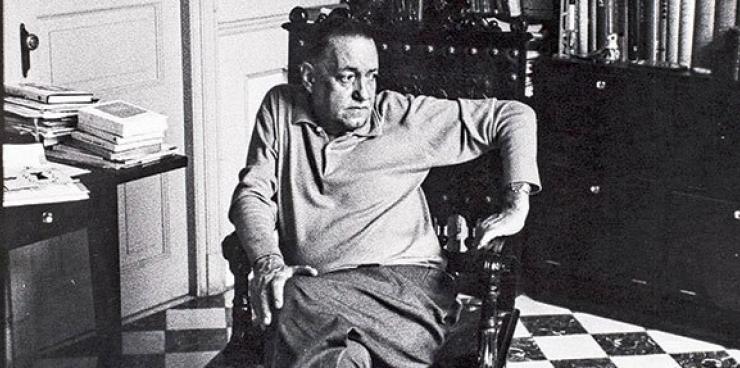 “Y comprendía, ahora, que el hombre nunca sabe para quién padece y espera. Padece y espera y trabaja para gente que nunca conocerá, y que a su vez padecerán y esperarán y trabajarán para otros que tampoco serán felices, pues el hombre ansía siempre una felicidad situada más allá de la porción que le es otorgada. Pero la grandeza del hombre está precisamente en querer mejorar lo que es. En imponerse tareas. En el reino de los cielos no hay grandeza que conquistar, puesto que allá todo es jerarquía establecida, incógnita despejada, existir sin término, imposibilidad de sacrificio, reposo y deleite. Por ello, agobiado de penas y de tareas, hermoso dentro de su miseria, capaz de amar en medio de las plagas, el hombre sólo puede hallar su grandeza, su máxima medida en el reino de este mundo.”
“Y comprendía, ahora, que el hombre nunca sabe para quién padece y espera. Padece y espera y trabaja para gente que nunca conocerá, y que a su vez padecerán y esperarán y trabajarán para otros que tampoco serán felices, pues el hombre ansía siempre una felicidad situada más allá de la porción que le es otorgada. Pero la grandeza del hombre está precisamente en querer mejorar lo que es. En imponerse tareas. En el reino de los cielos no hay grandeza que conquistar, puesto que allá todo es jerarquía establecida, incógnita despejada, existir sin término, imposibilidad de sacrificio, reposo y deleite. Por ello, agobiado de penas y de tareas, hermoso dentro de su miseria, capaz de amar en medio de las plagas, el hombre sólo puede hallar su grandeza, su máxima medida en el reino de este mundo.”
– Alejo Carpentier, El Reino de Este Mundo
“Now he understood that a man never knows for whom he suffers and hopes. He suffers and hopes and toils for people he will never know, and who, in turn, will suffer and hope and toil for others who will not be happy either, for man always seeks a happiness beyond that which is granted to him. But man’s greatness consists in the very fact of wanting to be better than he is. In laying duties upon himself. In the Kingdom of Heaven there is no greatness to conquest, because there everything is an established hierarchy; the unknown is revealed; never ending existence; impossibility of sacrifice, repose and delight. For this reason, burdened by suffering and duties, beautiful in the midst of his misery, capable of love even in times of plagues, man can only find his greatness, his fullest measure, in the Kingdom of this World.”
– Alejo Carpentier, The Kingdom Of This World
